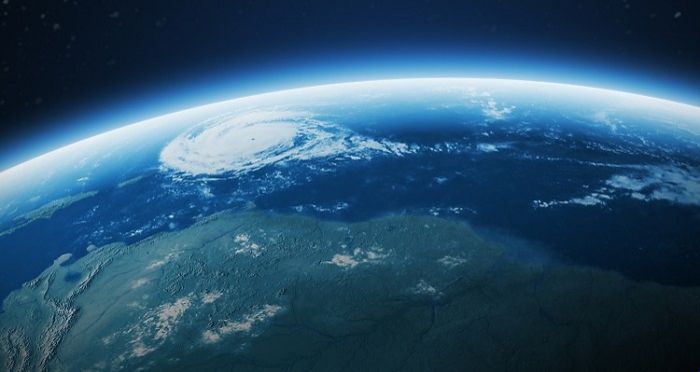Experts have identified the emerging but little understood trends that could have a big impact on the natural world in 2019.
A Horizon Scan of Emerging Issues for Global Conservation is the tenth annual paper identifying threats and challenges to biodiversity and conservation, led by William Sutherland, Professor of Conservation Biology at Cambridge University, and published in the journal Trends in Ecology & Evolution.
The annual report looks at new developments that authors believe could present risks and opportunities in the coming year, but which currently have low awareness in the conservation community. The international team reviewed 91 potential emerging issues, whittling them down to the 15 they believe may have the biggest impact - positive or negative - but are the least well known.
This year's topics include advances in crop breeding, which may affect insects and land use, the release of carbon and mercury from melting polar ice and thawing permafrost, the impact of new funding schemes and regulations, and expansion of oil palm plantations across Indo-Malaysia.
The 2019 emerging issues are:
-
Change in the capacity of Antarctic benthos to store carbon as climate changes
The Antarctic is losing ice faster than previously projected. This rapid melting will have a dramatic impact on the community of organisms living around the seabed, known as the benthos. This polar seabed is a massive carbon sink, and the functioning of its ecosystems could substantially shape the global carbon cycle and rate of climate change. -
Extensive release of mercury by thawing permafrost
Mercury is a highly toxic element released both from natural and human-generated sources. It accumulates in food chains and has a negative effect on animals, plants and microbes. It is known that mercury will be released by melting permafrost but it has only recently emerged that the magnitude of this release could be far greater than previously thought. -
Ecological effects of options for reducing plastic pollution
Public concern and government action on plastic pollution and its effects on wildlife have dramatically increased. If produced on a large scale, replacing plastics with new plant-based materials could have unintended impacts on water and food security, as well as available habitats for native species. These materials also take a long time to biodegrade and encouraging them may prevent public awareness of the benefits of reducing overall consumption. -
Effects of shinorine sunscreens on corals and other marine species
Shinorine is an amino acid which absorbs ultraviolet light. It has recently been produced synthetically, increasing its potential for commercial use in sunscreens. Conventional sunscreens contain chemicals thought to contribute to coral reef bleaching, so there is interest in alternatives. However, the potential effects on marine organisms of extensive adoption of shinorine in sunscreen products are as yet unknown. -
A new irrigation canal in Northwest China supplied by water from the Qinghai-Tibet Plateau
A newly proposed canal, the 'Hongqi River', has gained support as a way to irrigate an area of semi-desert in northern China that is not productive for farming. Environmental impact assessments have not been published but diverting large amounts of water from other areas could have substantial ecological effects, including direct impacts on native species and ecosystems, regional climate change and weather, and changing where people live. -
Modification of weather in the Tibetan Plateau by cloud seeding
China has announced plans for cloud seeding on the mountain ridges of the Tibetan Plateau, using military rocket technology. Releasing particles into the sky will increase rainfall and substantially change weather over large areas. This could have considerable effects on ecosystems of the region, including loss of specific habitats and threatening many species in the region. -
Salt-tolerant strains of rice
Rising sea levels and irrigation have led to coastal and inland soils becoming saltier. China is using genetic technology to create strains of salt-tolerant rice, potentially making production possible on new soils. However, the ecological impacts of converting natural ecosystems to commercial cultivation have not been fully explored. -
US government decision not to regulate gene-edited plants
In March 2018, the US confirmed it will not regulate gene-editing of plants that could be developed using traditional breeding techniques. In contrast, the European Court of Justice states gene-edited crops should be subject to the same stringent regulations as genetically-modified organisms. The absence of US regulation is likely to lead to innovation in gene-editing, and its effects on biodiversity could be positive or negative. -
Effect on insects of transgenic oilseed crops that produce omega-3 fatty acids
Oilseed crop varieties have been genetically-engineered to produce essential omega-3 fatty acids. This enhances their nutritional value and could reduce demand for wild-caught fish, a current supply of these nutrients. However, there could be unintended consequences. For example, butterfly larvae feeding on these crops become heavier adults but have smaller wings that are more likely to be deformed. -
Harnessing plant microbiomes for agricultural production and ecosystem restoration
It is possible to manipulate the microbiome of plants to make them more resistant to disease and stresses. Technological advances have recently reinvigorated the field and it is already used commercially to alter plants, for example, to combat fungal diseases. There could be positive and negative impacts on biodiversity, from reducing the need for pesticide and fertiliser, to allowing agriculture to expand into new land rich in wildlife. -
Expansion of plantations and infrastructure into Indo-Malay islands
Islands in the Malay Archipelago in Southeast Asia have some of the world's richest ecosystems. Deforestation for commodities such as palm oil is increasing and only 2% of the region is formally protected. The high number of species unique to these regions, especially on the small islands of Nusa Tenggara and Maluku, suggest that further palm oil plantation expansion could lead to extinctions across the region. -
Development of fisheries in the mesopelagic zone
The mesopelagic zone of the ocean is from 200m to 1,000 m deep. Countries, including Norway and Pakistan, have already issued experimental licences for harvesting in this largely unexplored area. Factors including slow reproductive rates make this rich ecosystem vulnerable to depletion. These species play a critical role in transporting carbon to the deep sea. Without regulation, harvesting will have substantial effects on marine life, food webs and global climate. -
Industrial microbial feed production
Increasing demand for meat requires more land used for raising and feeding livestock, increasing global emissions of greenhouse gases. Supplementing the diet of livestock with microbial protein produced from natural gas or hydrogen could reduce the land used for agriculture and decrease both nitrogen lost to the surrounding area and greenhouse gas emissions. -
Innovative insurance products to share costs and benefits of protecting natural assets
Ecosystems provide benefits to communities such as tourism, fishing and storm defences, if managed sustainably. Insurance schemes can be used to protect these valuable natural assets from damage and provide funds for their repair, to the continued benefit of the people that rely on them. A scheme like this is already in place in Mexico, managed through a trust that insures and maintains a stretch of reef. -
Effects of non-compliance with the Montreal Protocol on global environmental governance
Chlorofluorocarbons (CFCs) were commonly used in manufacture, including of household appliances, until NERC-funded research discovered they were extensively damaging the ozone layer. They were banned globally under the Montreal Protocol in 2010. However, their presence in the stratosphere has been declining more slowly than expected, raising concerns about the illicit continued production of CFCs and the feasibility of governing environmental issues globally.








